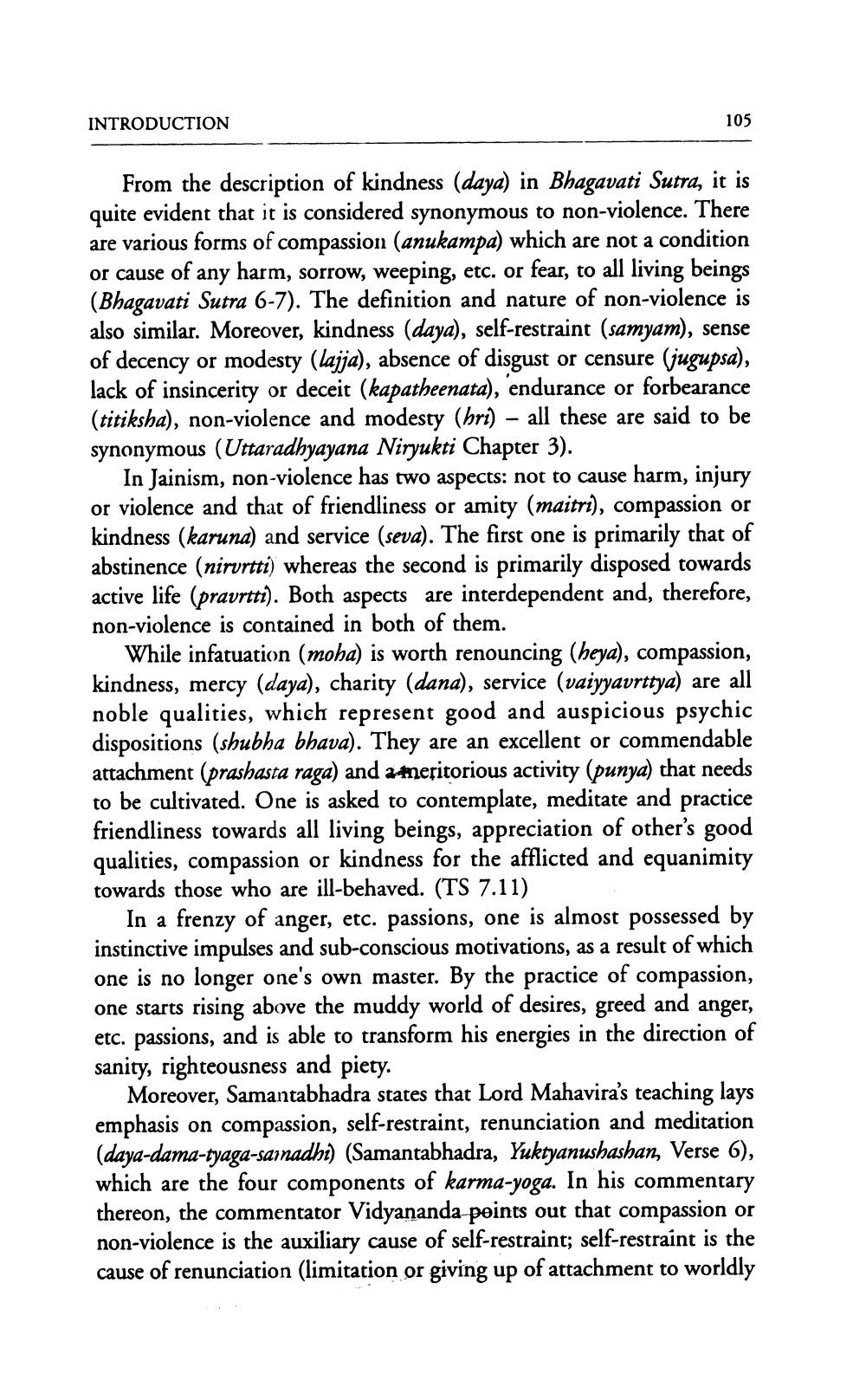________________
INTRODUCTION
105
From the description of kindness (daya) in Bhagavati Sutra, it is quite evident that it is considered synonymous to non-violence. There are various forms of compassion (anukampa) which are not a condition or cause of any harm, sorrow, weeping, etc. or fear, to all living beings (Bhagavati Sutra 6-7). The definition and nature of non-violence is also similar. Moreover, kindness (daya), self-restraint (samyam), sense of decency or modesty (lajja), absence of disgust or censure (jugupsa), lack of insincerity or deceit (kapatheenata), endurance or forbearance (titiksha), non-violence and modesty (hri) – all these are said to be synonymous (Uttaradhyayana Niryukti Chapter 3).
In Jainism, non-violence has two aspects: not to cause harm, injury or violence and that of friendliness or amity (maitri), compassion or kindness (karuna) and service (seva). The first one is primarily that of abstinence (nirurtti) whereas the second is primarily disposed towards active life (pravrtti). Both aspects are interdependent and, therefore, non-violence is contained in both of them.
While infatuation (moha) is worth renouncing (heya), compassion, kindness, mercy (daya), charity (dana), service (vaiyyavrttya) are all noble qualities, which represent good and auspicious psychic dispositions (shubha bhava). They are an excellent or commendable attachment (prashasta raga) and a meritorious activity (punya) that needs to be cultivated. One is asked to contemplate, meditate and practice friendliness towards all living beings, appreciation of other's good qualities, compassion or kindness for the afflicted and equanimity towards those who are ill-behaved. (TS 7.11)
In a frenzy of anger, etc. passions, one is almost possessed by instinctive impulses and sub-conscious motivations, as a result of which one is no longer one's own master. By the practice of compassion, one starts rising above the muddy world of desires, greed and anger, etc. passions, and is able to transform his energies in the direction of sanity, righteousness and piety.
Moreover, Samantabhadra states that Lord Mahavira's teaching lays emphasis on compassion, self-restraint, renunciation and meditation (daya-dama-tyaga-sainadhi) (Samantabhadra, Yuktyanushashan, Verse 6), which are the four components of karma-yoga. In his commentary thereon, the commentator Vidyananda points out that compassion or non-violence is the auxiliary cause of self-restraint; self-restraint is the cause of renunciation (limitation or giving up of attachment to worldly




